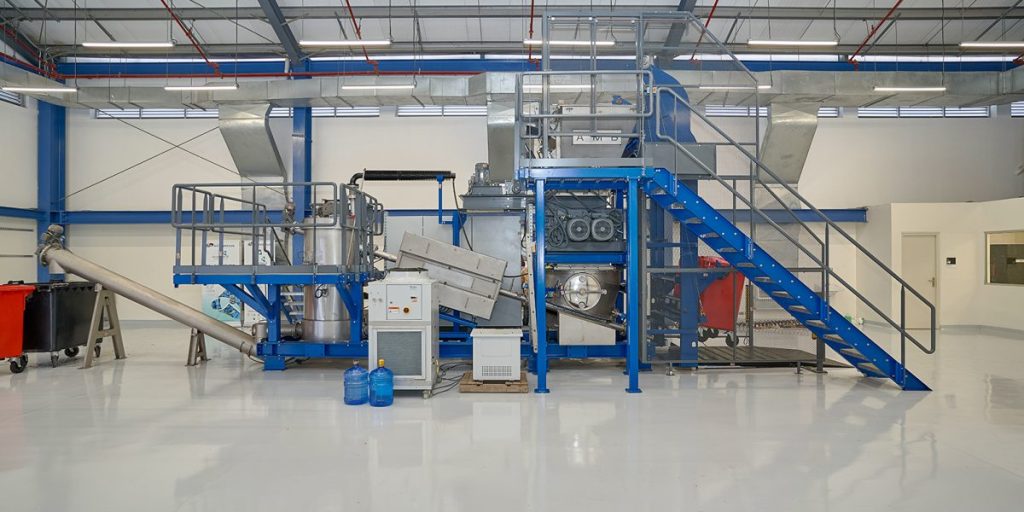Medical Waste Recycling Machine: Advancing Sustainable Waste Management Solutions
Innovative Solutions for Medical Waste Recycling: The Role of Recycling Machines
Promoting Environmental Sustainability: Benefits of Medical Waste Recycling Machines
In the realm of modern healthcare, the responsible management of medical waste has emerged as a critical concern. The increasing volume of medical waste generated by healthcare facilities calls for innovative solutions that not only ensure proper disposal but also contribute to environmental sustainability. One such groundbreaking solution is the “Medical Waste Recycling Machine,” which has revolutionized the way medical waste is managed and treated.
Advantages and Impact of Medical Waste Recycling Machines
- Eco-Friendly Waste Disposal: Medical waste recycling machines are designed to recycle and repurpose various types of medical waste, reducing the need for conventional incineration or landfill disposal. This significantly reduces the environmental impact of medical waste.
- Resource Recovery: These machines enable the recovery of valuable resources from medical waste, such as metals and plastics. This resource recovery process contributes to a circular economy and reduces the demand for virgin materials.
- Energy Generation: Some medical waste recycling machines are designed to convert waste into energy through processes like anaerobic digestion or waste-to-energy conversion. This not only reduces waste volume but also generates clean energy.
- Compliance with Regulations: Medical waste recycling machines adhere to strict regulations and standards for waste treatment. This ensures that hazardous components are properly managed and neutralized before disposal.
- Cost-Effectiveness: Investing in medical waste recycling machines can lead to long-term cost savings for healthcare facilities. Reduced disposal costs and potential revenue from recovered resources contribute to financial sustainability.
Advancements in Medical Waste Recycling Technology
- Innovative Treatment Methods: Medical waste recycling machines employ innovative treatment methods such as shredding, sterilization, and separation to process waste efficiently and safely.
- Smart Automation: Many recycling machines incorporate smart automation features that optimize waste sorting, processing, and resource recovery, reducing the need for manual intervention.
- Real-time Monitoring: Advanced sensors and monitoring systems in these machines provide real-time data on waste processing, allowing for better tracking and decision-making.
Future Directions for Medical Waste Recycling
As environmental concerns continue to grow, the demand for sustainable waste management solutions is on the rise. Medical waste recycling machines are expected to play a pivotal role in shaping the future of medical waste management.
Technological Advancements: Further advancements in recycling machine technology are anticipated, leading to even more efficient and environmentally friendly waste treatment processes.
Global Adoption: The adoption of medical waste recycling machines is expected to increase globally, as healthcare facilities recognize the benefits of sustainable waste management practices.
Collaboration and Innovation: Collaboration between healthcare institutions, technology developers, and regulatory bodies will drive innovation and the development of more advanced and effective recycling machines.
Challenges and Considerations
While medical waste recycling machines offer promising solutions, their widespread adoption and implementation come with certain challenges and considerations:
- Initial Investment: Acquiring and implementing medical waste recycling machines may require a significant initial investment for healthcare facilities. However, it’s essential to view this investment as a long-term strategy that can lead to substantial cost savings over time.
- Technological Integration: Integrating new technology into existing waste management systems can be complex. Adequate training and support are necessary to ensure the proper operation of recycling machines and maximize their benefits.
- Regulatory Compliance: Different regions and countries have varying regulations and guidelines for medical waste management. Healthcare facilities must ensure that the chosen recycling machines align with local regulations to avoid legal issues.
- Operational Efficiency: While recycling machines offer enhanced efficiency, optimizing their operation and maintenance is crucial to prevent downtime and ensure seamless waste processing.
Empowering a Sustainable Future
Medical waste recycling machines are not only transforming waste management practices but also contributing to a more sustainable future for the healthcare industry and beyond. Their ability to reduce the environmental impact of medical waste, recover valuable resources, and generate clean energy demonstrates the power of innovative technology in addressing pressing global challenges.
As healthcare providers increasingly recognize the benefits of medical waste recycling machines, the industry is poised to make a significant positive impact on both public health and environmental well-being. By integrating these machines into their waste management strategies, healthcare facilities can minimize their ecological footprint and lead the way toward a greener and more sustainable tomorrow.
Conclusion
In conclusion, the emergence of medical waste recycling machines marks a crucial turning point in the field of waste management. These innovative solutions offer a path toward reducing the environmental burden of medical waste while promoting resource recovery and energy generation. Through advancements in technology, collaboration among stakeholders, and a commitment to sustainability, the healthcare industry can pave the way for a cleaner, healthier, and more environmentally responsible future.
As healthcare providers, policymakers, and technology developers work together to overcome challenges and embrace opportunities, the widespread adoption of medical waste recycling machines has the potential to revolutionize waste management practices on a global scale. By investing in these transformative technologies and fostering a culture of environmental stewardship, we can create a world where medical waste is no longer a burden but a valuable resource for a sustainable future.

